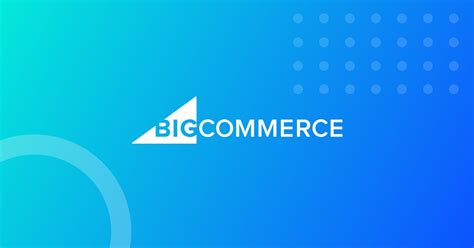In today's digital age, having a robust ecommerce tech stack is crucial for online businesses to stay competitive and achieve success. A well-structured tech stack enables ecommerce companies to efficiently manage their operations, provide seamless customer experiences, and drive revenue growth. In this article, we will delve into the key components of an ecommerce tech stack, exploring their importance and how they contribute to online success.
The Importance of an Ecommerce Tech Stack
An ecommerce tech stack refers to the collection of software applications, tools, and technologies used to build, manage, and grow an online store. It serves as the backbone of an ecommerce business, supporting various functions such as website development, payment processing, inventory management, marketing, and customer service. A robust ecommerce tech stack is essential for several reasons:
- It enables businesses to create a seamless and engaging shopping experience for customers, leading to increased conversions and loyalty.
- It streamlines operational processes, reducing manual errors and increasing efficiency.
- It provides valuable insights and data, helping businesses make informed decisions and drive growth.
Key Components of an Ecommerce Tech Stack
A typical ecommerce tech stack consists of several key components, each playing a vital role in supporting the online business. Some of the essential components include:
Ecommerce Platform

An ecommerce platform is the foundation of an online store, providing the necessary tools and features to manage products, process payments, and handle customer interactions. Popular ecommerce platforms include Shopify, Magento, and WooCommerce.
Payment Gateway

A payment gateway is a critical component of an ecommerce tech stack, enabling businesses to accept and process online payments securely. Popular payment gateways include PayPal, Stripe, and Authorize.net.
Inventory Management System

An inventory management system helps businesses track and manage their stock levels, ensuring that products are always available to meet customer demand. Popular inventory management systems include TradeGecko, Zoho Inventory, and Skubana.
Marketing Automation Tools

Marketing automation tools enable businesses to streamline and optimize their marketing efforts, improving customer engagement and conversion rates. Popular marketing automation tools include Mailchimp, Klaviyo, and Marketo.
Customer Service Tools

Customer service tools help businesses provide exceptional support to their customers, ensuring that issues are resolved promptly and efficiently. Popular customer service tools include Zendesk, Freshdesk, and Gorgias.
Analytics and Reporting Tools

Analytics and reporting tools provide businesses with valuable insights into their online performance, helping them make data-driven decisions and drive growth. Popular analytics and reporting tools include Google Analytics, Mixpanel, and Metabase.
Choosing the Right Ecommerce Tech Stack
With so many options available, choosing the right ecommerce tech stack can be overwhelming. To make the right choice, businesses should consider the following factors:
- Scalability: Can the tech stack grow with the business?
- Integration: Can the various components integrate seamlessly with each other?
- Cost: What are the total costs of ownership, including licensing fees and maintenance costs?
- Support: What kind of support does the tech stack provider offer?
Conclusion
In conclusion, an ecommerce tech stack is a critical component of online success. By choosing the right combination of components, businesses can create a seamless and engaging shopping experience for customers, streamline operational processes, and drive revenue growth. Remember to consider factors such as scalability, integration, cost, and support when selecting an ecommerce tech stack.
Gallery of Ecommerce Tech Stack






FAQ Section
What is an ecommerce tech stack?
+An ecommerce tech stack refers to the collection of software applications, tools, and technologies used to build, manage, and grow an online store.
What are the key components of an ecommerce tech stack?
+The key components of an ecommerce tech stack include ecommerce platform, payment gateway, inventory management system, marketing automation tools, customer service tools, and analytics and reporting tools.
How do I choose the right ecommerce tech stack for my business?
+When choosing an ecommerce tech stack, consider factors such as scalability, integration, cost, and support. It's essential to select a tech stack that can grow with your business and meet your specific needs.
